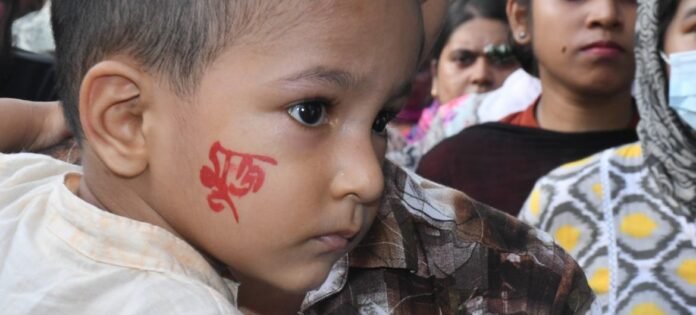The top official of the United Nations office said this while presenting the annual report before the Human Rights Council in Geneva on Monday.
He noted that international human rights and humanitarian law are our foundation for opposing authoritarian powers.
Volker Turk, completing the second year of his four-year term, expressed his concern about the current situation of human rights.
According to Volker Turk, we seem to be at a crossroads. “We can either continue on the current path, which is a risky new situation, which will send us into a very painful phase of sleep.”
“Or we can wake up and change the situation, for humanity and planet Earth.”
Against constant conflict
The UN agency chief warned that the new normal cannot be one of endless, deadly military conflict, brutal and technology-driven warfare, control and repression.
We cannot ignore growing inequality within and between countries, or allow the unabated spread of misinformation, distortion of information and hate speech.
According to him, in the new normal there can be no loss of national sovereignty, no damage to the credibility of multilateral institutions, no deviation from universally agreed norms.
In view of this, he appealed to choose alternatives that enable us to reconnect with our common humanity, nature and the earth.
Leadership crisis
Volker Turk told the Human Rights Council that human rights are not in crisis. But they have to be turned into reality by the political leadership.
Every region of the world is trying to stay in power through deeply entrenched power equations and doing so at the cost of universal human rights.
Societies face racism, ethnic discrimination, xenophobia and intolerance, reinforced by power structures, vested interests, institutional inertia and harmful beliefs, often rooted in the legacy of colonialism and slavery.
Volker Turk said some leaders have targeted immigrants, refugees and minorities, as was recently done during elections in Austria, France, Hungary, Britain and the United States. This involves the misuse of digital technologies, including the use of personal data.
Anti-government protests in Bangladesh spread across the country, killing more than 400 people and injuring thousands.
The power of human rights
He said that abuse of power has a profound impact on human rights, but they also play a role as a regulator and prevent those in power from taking wrong actions.
In this context, he mentioned the situation in Bangladesh, where according to him the student movement carries the torch of human rights.
He said the Human Rights Office was supporting the country’s new governance structure and would provide other assistance in addition to fact-finding missions to investigate human rights violations.
With elections taking place in many countries this year, Volker Turk advised voters and citizens to keep in mind the issues that affect their lives the most when casting their votes.
Such as children’s education, health of their families, justice, environment, violence and other issues related to human rights.
Sudan, violent conflict in Gaza
The High Commissioner for Human Rights noted that this is the 75th anniversary of the four Geneva Conventions, which focus on the rules of war. At the same time, the UN Charter promises to protect successive generations from the ravages of war and was passed 80 years ago.
Despite this, Sudan faces one of the world’s worst humanitarian and security crises, with crimes being carried out with impunity, ethnic tensions fueling and fueling conflicting economic interests.
According to him, the failure to address the root causes of conflict leads to repeated cycles of hatred, and the current situation in Gaza is an example.
Volker Turk stressed that ending the war and avoiding major regional conflict was an urgent and urgent priority.
He emphasized that member states must find it unacceptable to show blatant disregard for international law, including legally binding decisions of the UN Security Council and the International Court of Justice.

A displaced Palestinian family in devastated Gaza.
Worrying situation in Ukraine, Myanmar
The High Commissioner for Human Rights noted that civilians in Ukraine are trapped in a vicious cycle of terrorism and that the Russian military continues to attack civilian facilities, including schools and hospitals.
At the same time, the crisis in Myanmar is deepening into inhumanity and in recent times there have been reports of airstrikes, mass arrests, extrajudicial killings, which are carried out with impunity.
He said that in many cases humanitarian aid supplies are blocked, diverted and monitors are denied access to populations in need.
Responsibility of Member States
Volker Turk said that international humanitarian and human rights laws were created to protect our common humanity. This is our basis for autocratic power.
He emphasized that all parties, including the hegemonic countries, must make every effort to end violent conflict and war.
To this end, under agreed obligations, it is important to refrain from exporting or transferring weapons to a party to an armed conflict where there is a risk of their misuse. He said, it is encouraging that some countries are taking steps in the right direction in this regard.

